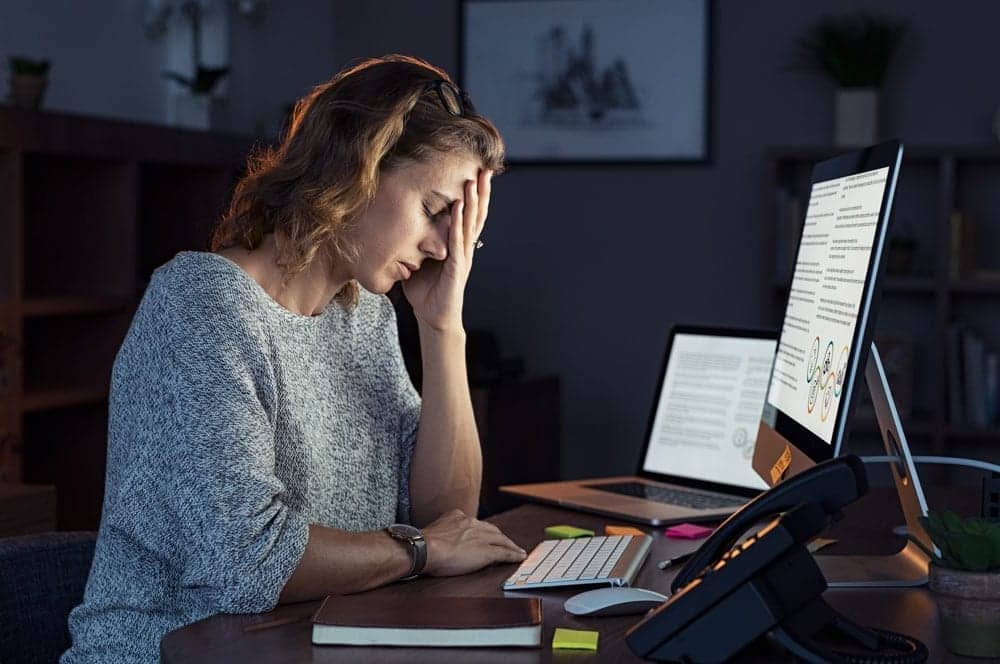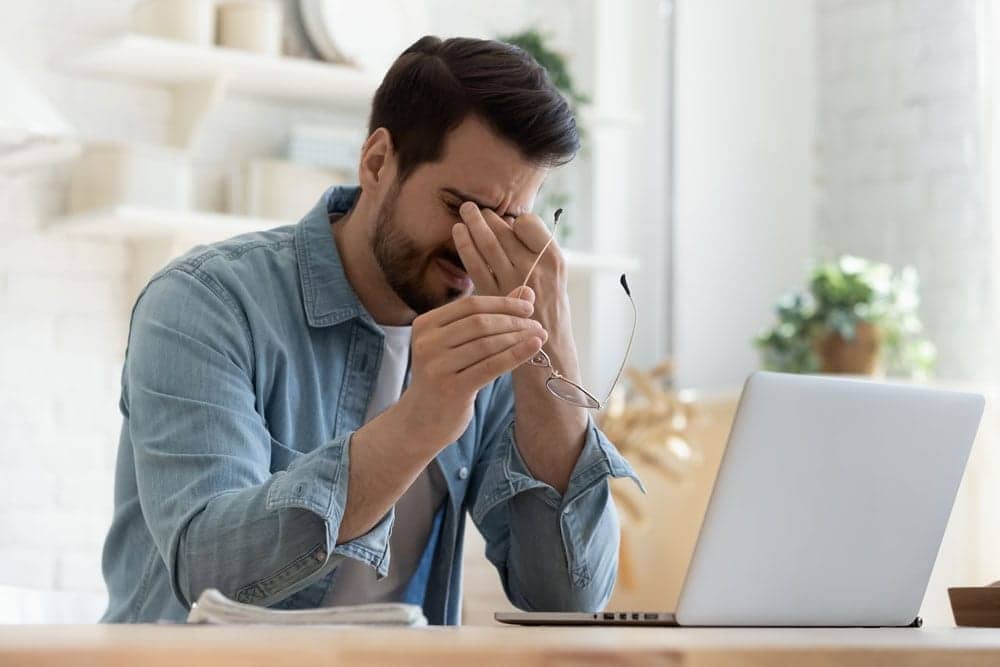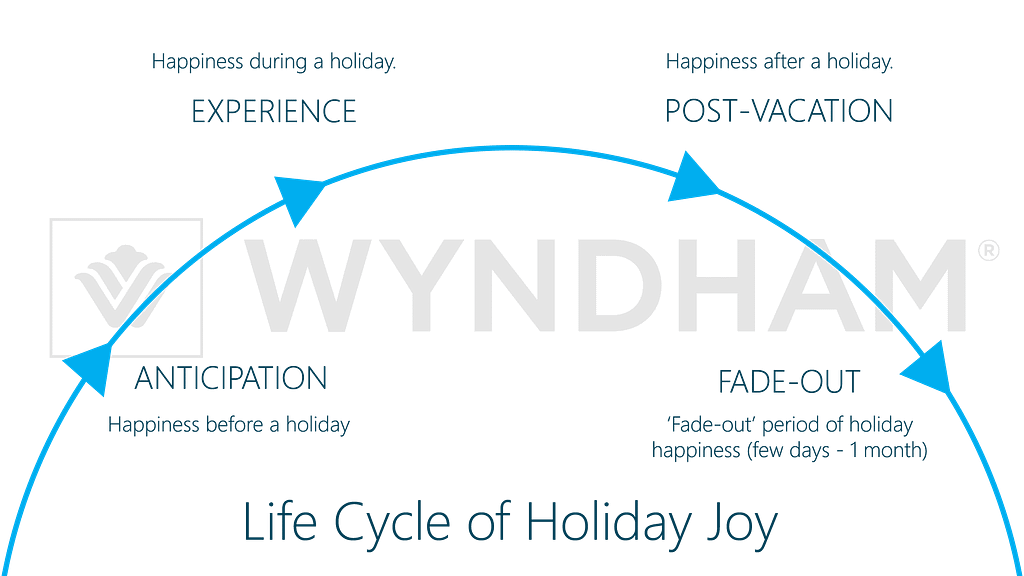This article covers the health impacts of stress and the health benefits of holidays.
Picture this. You work full-time, which your paycheck tells you equates to 38 hours a week.
In reality, it’s a lot more.
Two hours a day sacrificed to rush-hour traffic.
A lunch break you don’t get paid for that you need to take anyway because it’s the only time of the day you can catch a mental reprieve.
A workload that spills into overtime because your boss keeps assigning you ‘urgent’ tasks at the last minute.
Then you get home, and that job you sank four years of uni into takes a backseat to your other career: parenting.
Cook dinner, clean the house, wash the kids’ clothes, prep your outfit for tomorrow. It’s already 9pm, and you need to be up at 5 tomorrow.
You smash out your dinner, brush your teeth, have a quick shower and crawl into bed. Your partner’s already asleep.
You wake up the next morning, and do it all over again.

Let’s face it. The above scenario is the a snapshot into the lives of most white-collar workers.
We work day in, day out, so caught up in the corporate rat-race that we can’t think beyond just getting through the day.
We’re consumed by stress, cornered by a competitive job market and high redundancy rates.
But that’s just life, right? There’s nothing you can do about it, is there?
Wrong. There is something you can do about it, and it doesn’t involve quitting or starting your own business or years of upskilling.
But before we get into that, let’s look at why you should do something about it.
If the thought of being hunched behind a desk for the majority of your waking hours, missing out on time with your family and working instead of living doesn’t frighten you, maybe the knowledge of what stress does to your body will.
We all know stress is bad for your health. But how bad? Let’s take a look.
The American Psychological Association wrote about a comprehensive article about exactly how stress affects your body, so we’re going to summarise it below. If you’ve got time, we definitely recommend reading the full paper here.
Effects of Stress (Broken Down by Bodily System)

Musculoskeletal System (Muscles and Skeleton)
- Can trigger migraines and tension-type headaches
- Can cause chronic pain in the lower back and upper extremities
Respiratory System (Lungs, Throat, Nose, Mouth)
- Can cause shortness of breath
- Can exacerbate pre-existing respiratory problems like asthma and chronic obstructive pulmonary disease
- Acute stress can trigger hyperventilation, which can lead to panic attacks
Cardiovascular System (Heart)
- Can lead to hypertension
- Likelihood of heart attacks and strokes exponentially increased
- Can contribute to inflammation in the circulatory system
Endocrine System (Hormones)
- Leads to constant production of glucocorticoids like cortisol, which impairs communication between the HPA axis and immune system.
- This can lead to conditions like chronic fatigue, diabetes, obesity, depression and immune disorders.
Gastrointestinal System (Stomach, Intestines, Bowels, Oesophagus)
- Can lead to difficulty swallowing and even spasms in the oesophagus
- Burping, bloating and gassiness are very common
- Stomach pain, nausea and irritation are felt more easily
- High stress levels can lead to vomiting
- Can cause increased or decreased appetite, which leads to mood swings
- Can cause bowel irritation or even bowel spasms

Nervous System
- Constant activations of the sympathetic and parasympathetic nervous systems causes the autonomic nervous system to trigger widespread bodily functions, which can lead to long-term health complications across all bodily systems
Male Reproductive System
- Can lead to decreased libido, including erectile dysfunction and impotence
- Can affect sperm production, causing difficulties in reproduction
- Can lead to diseases in the reproductive organs
Female Reproductive System
- Can lead to irregular, more painful menstruation and decreased libido
- Ability to conceive can be impacted
- Can cause more severe premenstrual symptoms
- Higher chance of diseases in the reproductive organs
It’s all negative headlines here.
Stress doesn’t just give you the occasional headache. It’s right up there with other unhealthy lifestyle choices like smoking and alcoholism.
And here’s the thing – just because you have a well-paid, complex career doesn’t mean you’re condemned to a life burdened by the effects of stress.
The American Psychological Association recommend preventative measures like regular exercise (30 minutes of moderate movement a day), a healthy social network and adequate sleep (7-9 hours for healthy adults). If you’re struggling to get to some shut-eye even when you’re on vacation, check out our 6 Practical Tips for Sleeping Better While Travelling.
So what about something that encompasses all of those, plus a few extra benefits?
Yes, we’re talking about holidays.
Everyone loves a nice vacation, but it might come as a surprise that a week sprawled on a Fijian beach is actually great for your health too. Most of the research around how holidays benefit health focus on mental health or subjective well-being, which are more easily measured than physical health.
However, as we know, mental health conditions like chronic stress, chronic fatigue and depression have real impacts on our bodies.
Here are the top health benefits from holidaying, backed up by findings from this paper.
Health Benefits of Holidays
Holidays improve feelings of high quality-of-life and general happiness.
We know how important being happy and satisfied is – after all, finding happiness is arguably the whole point of life. Holidaying has been proven to improve general happiness, with researchers finding that this ‘holiday joy’ has a four-stage lifecycle:
- Anticipation: People are happier than normal before their holiday because they anticipate great experiences.
- Experience: People are happy during their holiday, with these happiness levels being increased by factors such as:
- recovery experiences (both physical and mental)
- the holiday closely matching expectations
- activity level during the holiday
- Post-Vacation: Following an enjoyable holiday, people experience a kind of ‘honeymoon happiness’.
- Fade-Out: As normal life and work set back in, the joy of the holiday is gradually diminished. This last stage can take between a few days and a month, depending on the individual and their workload.

Holidays reduce stress.
This is the big one. It’s been proven that taking a holiday leads to decreased work stress, decreased burnout, less exhaustion and less future absenteeism.
If you’re looking to reduce the drastic health effects of stress, you can start with a holiday. It’s as simple as that.
Holidays can improve physical health.
We said it’s harder to measure the physiological impacts of holidays, but researchers Brooks Gump and Karen Matthews managed to do it.
They examined a group of 12,388 middle-aged American men over 9 years and found a significant correlation between holidaying more frequently and fewer cardiovascular incidents.
In their words, “the frequency of annual vacations by middle-aged men at high risk for CHD [coronary heart disease] is associated with a reduced risk of all-cause mortality and, more specifically, mortality attributed to CHD”.
Unsurprisingly, Gump and Matthews attributed this lower mortality rate to reduced psychological stress levels.
If you’ve finished reading this article and you’ve decided you’d like to live a long, healthy life, here’s what you need to do next.
First, read our article about how to turn your 20 days of annual leave into 48. The less time you spend at home and the more time you spend holidaying, the better the impacts on your health.
Second, start planning this year’s (or next year’s) holidays. Figure out what works for you and your family, and set that time aside.
Third, figure out where you want to go. This is the fun part. Check out our list of destinations – we have a range of 4- and 5-star properties across stunning locations in Australia, New Zealand, Indonesia, Thailand and Fiji.
Four, book. As soon as you know when and where you want to go, book it all (flights, accommodation, everything) so you don’t miss out.
Five, plan your itinerary. This step isn’t essential, but it’s a great way to bond with your family and figure out what you want to do.
Did you enjoy this article about the health benefits of holidays? There’s a subscribe form at the top of the page. Fill it out, and you can receive insightful articles about holidaying and travel on a regular basis.







